Multi-species Swards Backed by Science, Irish Farmers and DLF
Fields of chicory and plantain as part of diverse multi-species swards are now a common site across the Irish countryside. The popularity of multi-species swards has exploded in recent years, partly thanks to generous grants from DAFM, but mainly because of their value to Irish farmers. The list of benefits of multi-species swards is quite extensive but the main benefits include greatly reducing N fertiliser requirement and fertiliser costs, increasing summer forage production and quality - giving drought tolerance and improving animal intakes and performance
DLF have been big advocates of multi-species swards in Ireland since the early days, putting a lot of investment in R & D, developing the leading mixture and explaining the potential of multi-species swards in Ireland. We think multi-species swards have an extremely important role to play in future-proofing Irish agriculture by boosting the profitability, sustainability and adaptability of Irish farms.
But don’t just take our word for it. There is millions of euro invested by our universities and Teagasc to assess these swards and guide farmers on best management practices. Already there is a huge body of work that demonstrates the range benefits we can get from sowing multi-species swards both locally and internationally.
This is not an unknown concept by any means. So, what does the science say? The following is a synopsis of just 4 research trials published in the last 6 months examining multi-species swards in a range of management settings compared to more conventional perennial ryegrass and perennial ryegrass-white clover swards. The results are fascinating!
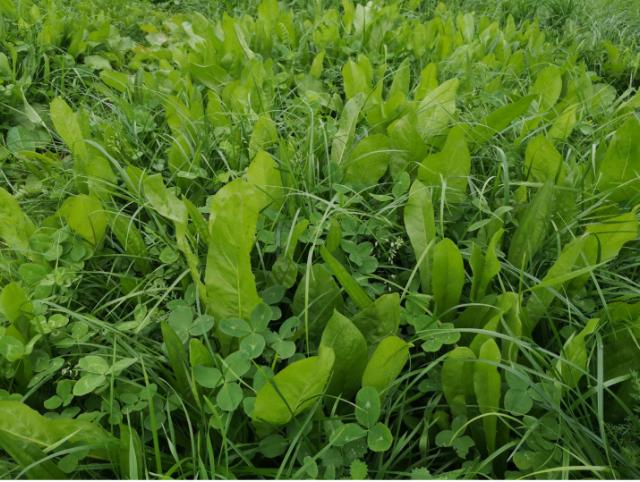
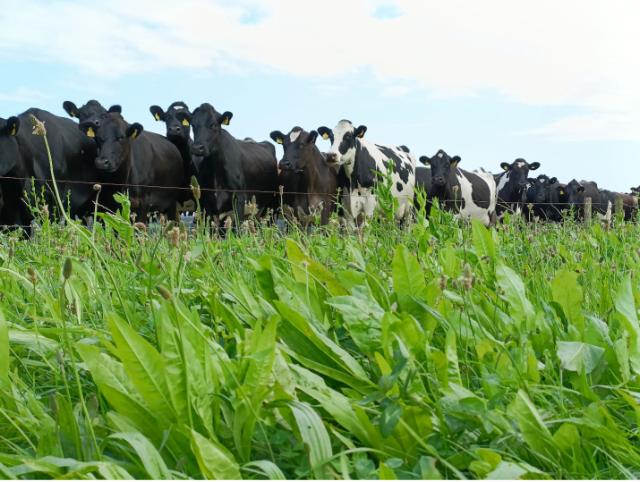
Dairy
In a recent publication from Teagasc Moorepark multi-species swards were declared ‘a win-win for dairy farming’. You can read more on this here. The comment was based on the findings of a dairy system trial showing multi-species swards produced more milk and required less chemical N than perennial ryegrass and white clover swards all while maintaining forage production.
The table below summarises the results of the trial and puts some financial values on the production gains and fertiliser savings of multi-species swards. Think of these figures in the context of your own farm using your current cow numbers, grazing platform and fertiliser use and see how much more profit you could be making with a couple of acres of multi-species swards.
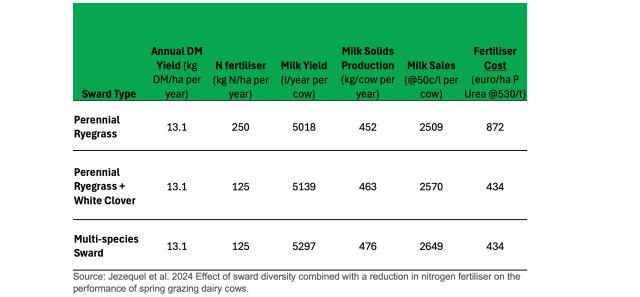
Beef
A beef systems trial at Teagasc Grange found no difference in animal performance between multi-species and grass-white clover swards when animals were slaughtered at 19, 23 or 26 months. Both of these swards received similar N fertiliser and there was no pure perennial ryegrass treatment so the fertiliser savings could not be detected in this study.
A significant difference was highlighted however in a dairy-beef trial jointly run by UCD and ABP. In this trial animals on the multi-species treatment were finished 40 days earlier than their perennial ryegrass counterparts. This faster finishing time could save up to 200kg meal/head per day!
Furthermore, the multi-species swards received 120kg N/ha less but still managed to produce 25% more forage than the perennial ryegrass swards. This is likely due to the superior summer production of multi-species swards. In a beef enterprise where margins are tight, the saving of 200kg meal/head and 120kgN/ha could be a gamechanger for the sector.
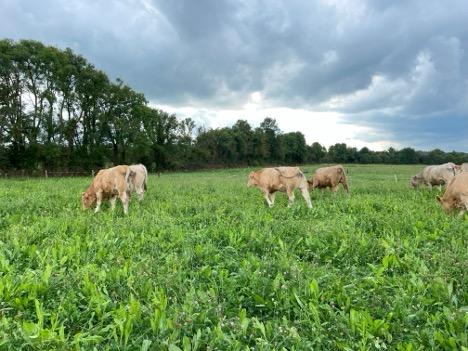
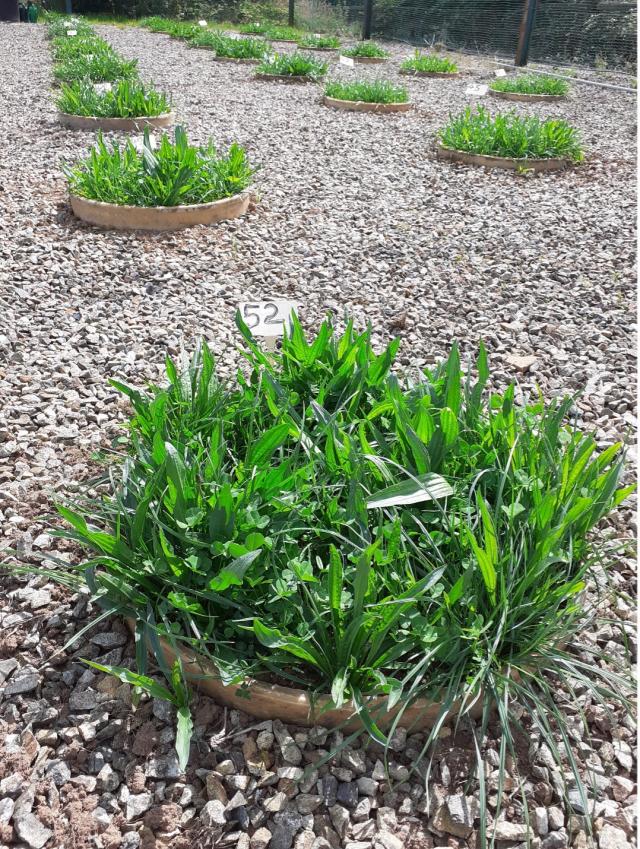
Environment
Our nitrates derogation from the EU depends on achieving certain standards in water quality across the country. Despite the widespread roll out of LESS on Irish farms and more careful use of fertiliser, water quality in Irish rivers and lakes remains unsatisfactory.
A recent study from Teagasc researchers at Johnstown Castle has found the incorporation of ribwort plantain into pasture can reduce nitrate leaching across a range of Irish soils – up to 98% in some cases at a plantain proportion of just 30%
For just 30% plantain in the sward we could reduce nitrate loss by up to 98%
This study is particularly close to our hearts as DLF variety Agritain was used as the plantain component and our Technical Manager Dr Thomas Moloney was involved in the scientific process too. Just imagine the effect on water quality the widespread inclusion of plantain could have! You can read more on what Teagasc have to say on this link
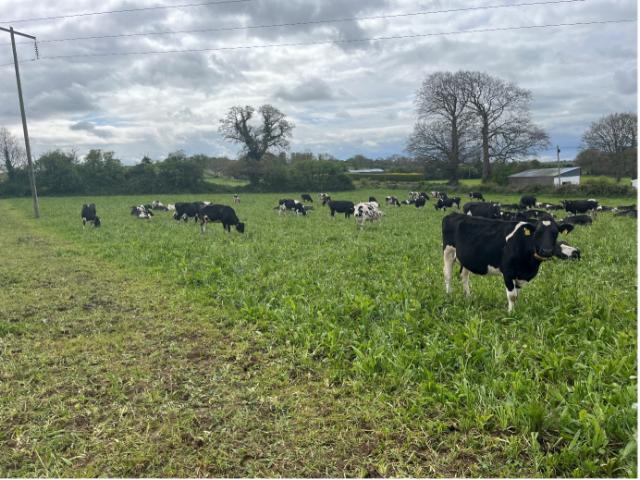
Want To Know More About Multi-Species Swards?
DLF offer a range of Multi-species swards designed to reduce fertilizer requirement and improve animal performance. The market-leading 6 Species Herbal Ley uses the best varieties available to prolong persistence and quality.